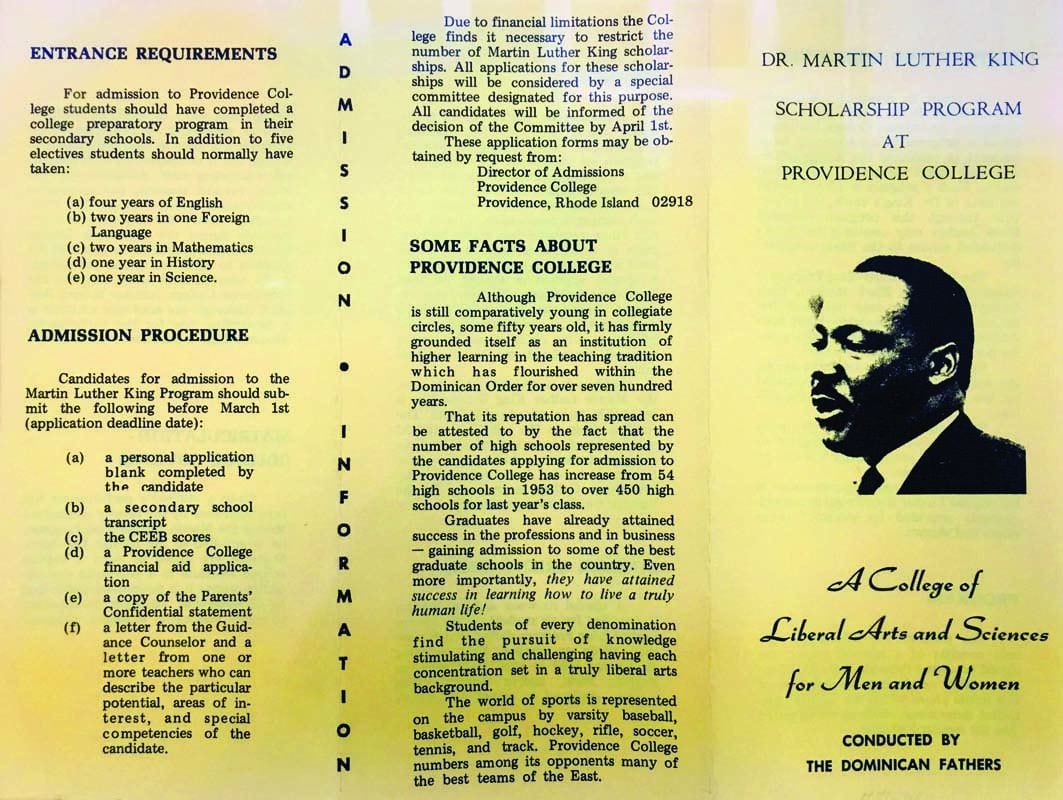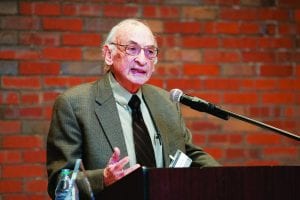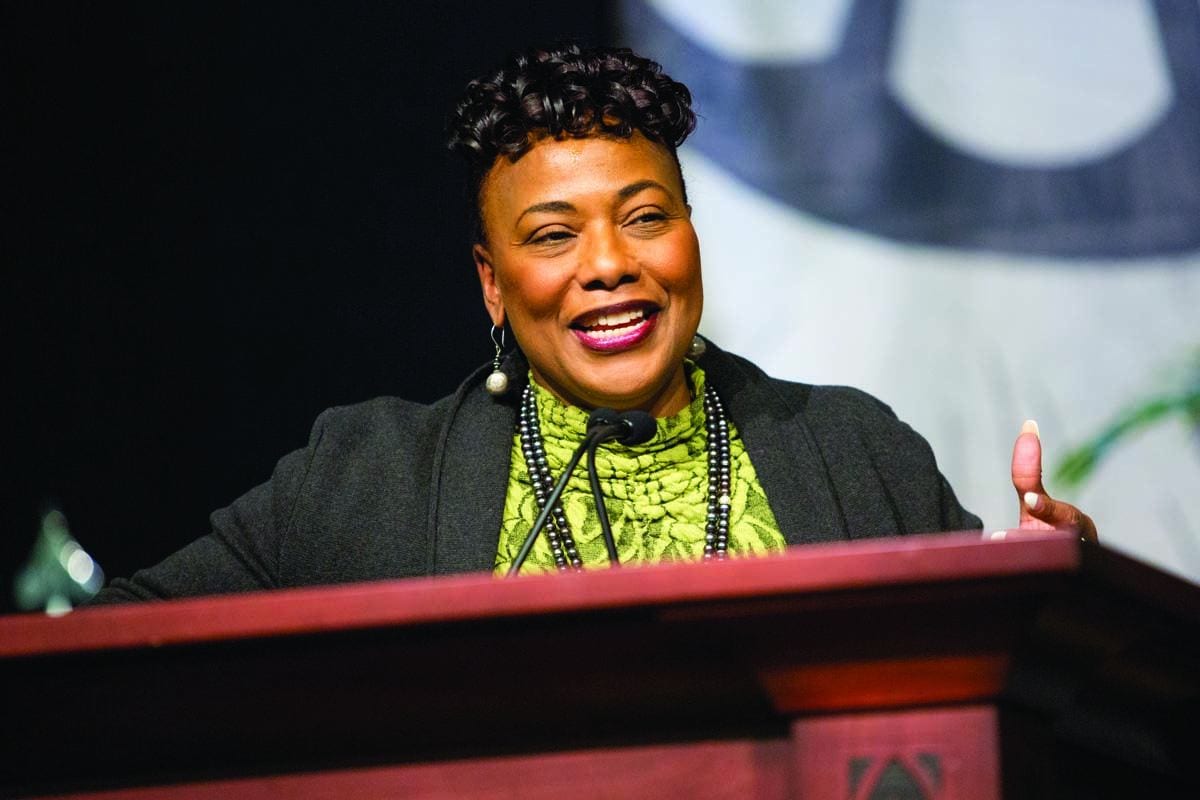MLK Scholarship Program dream endures
By Vicki-Ann Downing
Regret.
That’s what Dr. Francis P. MacKay, associate professor of chemistry, felt when Rev. Dr. Martin Luther King, Jr. was assassinated in Memphis on April 4, 1968. MacKay regretted that he had not done more to support the civil rights leader’s struggle, through non-violent methods, to end discrimination against black people in the United States.
MacKay decided to ask fellow faculty members to contribute to a scholarship fund that would allow black students to attend PC. He invited Dr. Mark N. Rerick, professor of chemistry, to join him. When they learned that Dr. René M. Fortin ’55, professor of English, was raising funds, too, the three combined efforts.
Faculty were asked to contribute one half of one percent of their annual salary by payroll deduction. Not one who was asked declined.

“When we had collected enough for four scholarships, we went to the administration and asked them to match what we had done,” MacKay said. “They more than matched it. We started with 12 scholarships and a summer bridge program. I don’t know how many programs were started by contributions from faculty, but that’s the way ours started.”

The professors also found support from Rev. Robert A. Morris, O.P. ’46 & ’82Hon., vice president for institutional development. Weeks before Dr. King’s assassination, Father Morris wrote a memo proposing that the College establish a scholarship program for black students in keeping with its mission to make a college education possible for first-generation students.
Father Morris became the scholarship program’s first director. In January, to celebrate the 50th anniversary of the MLK Scholarship Program at PC, the College presented the first MLK Vision Awards to MacKay and, posthumously, to Dr. Rerick, Dr. Fortin, and Father Morris.
Since 1968, the College has awarded an estimated 700 MLK scholarships, including 100 to students now attending PC.
“It has persisted and it has blossomed,” said MacKay. “It’s gratifying to see.”

Dr. Bernice A. King, the youngest child of Rev. Dr. Martin Luther King, Jr., visited campus in January to share her father’s message of love, non-violence, and hope for a “beloved community” in a presentation to students, faculty, staff, and alumni.
King’s visit highlighted Rev. Dr. Martin Luther King, Jr. Convocation Week at PC. She was 5 when her father was assassinated. Today, she maintains his legacy as chief executive officer of The Martin Luther King, Jr. Center for Nonviolent Social Change in Atlanta. She is a graduate of Spelman College and holds a master of divinity degree and a doctor of law degree from Emory University.
In her father’s vision of a beloved community, there is no such thing as an “absence of conflict,” but all can agree to embrace non-violence, King said.
“At the core of it is unconditional love,” King said. “It is woven into the very fabric of our religious tradition that people, all people, every person, is created in the imago dei, the image of God. … When I approach anything that separates and divides us, I look at you not as an enemy, not as an adversary, not as a stranger, but I look at you through the eyes of God and treat you as a brother or sister.”





